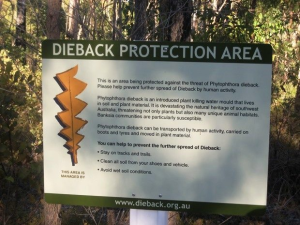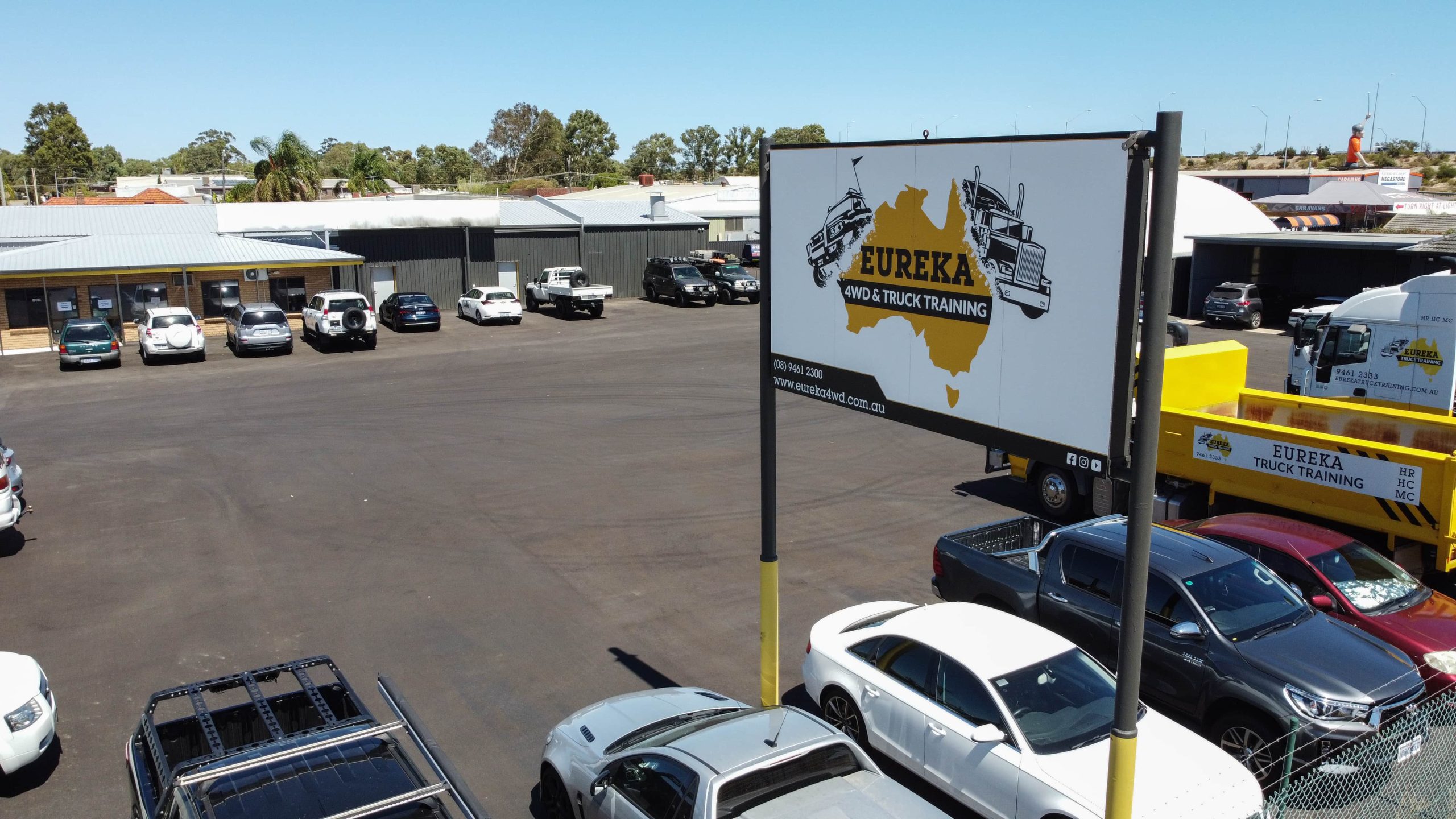As we are entering the rainy season in Perth and the South West it is very important as responsible off-roaders that we do our best to help stop further spread of dieback.
What is Phytophthora Dieback?
- Phytophthora dieback is caused by the plant pathogen, Phytophthora cinnamomi, which kills susceptible plants, such as banksias, jarrah and grass trees, by attacking their root systems.
- Dieback is a symptom of a Phytophthora infection and affects more than 40 per cent of the native plant species and half of the endangered ones in the southwest of Western Australia.
- The plants die because they cannot take up the water and nutrients they need.
- Dieback is not easy to detect as infected plants often appear to be dying from drought.
- There is no known cure for the disease.
- Phytophthora disease also affects many agricultural crops and garden plants.
- The fungus is spread through the movement of soil and mud, especially by vehicles and footwear. It also moves in free water and via root-to root contact between plants.
- It can devastate bush-land by removing particular plants and changing the nature of the landscape, possibly driving rare species toward extinction. Changes in the composition of bush-land also represent habitat change to animal communities with flow-on effects on their survival potential.

Its Impact in Western Australia
More than 40 per cent of Western Australian native plants are susceptible to the disease, particularly those in the state’s southwest.
The area of land infected in Western Australia by Phytophthora dieback is equivalent to 500 times the size of Rottnest Island or over one million hectares.
Where it is
Phytophthora dieback has been found in many of south-west Western Australia’s national parks, nature reserves and metropolitan bush-land:
- Along the coast
- In metropolitan Perth bush-land areas
- In National Parks
How It Affects the Environment
Dieback can cause:
- Loss of biodiversity
- Extinction of threatened plant and animal species that rely on susceptible plants for food and habitat.
- Reduced variety of native plants
- Disruption to woodland vegetation structure
- The increased dominance of resistant plants or introduced weeds.
Prevention
Prevention is still the key. Limiting the spread of Phytophthora dieback is cheaper and far more effective than managing the impacts of the disease once introduced.
Phytophthora dieback is most rapidly spread through human activity resulting in the movement of infected soil on vehicles, equipment and footwear.
This is where we as responsible off-roaders need to take particular care not to spread the disease.
Management practices to prevent the spread of Phytophthora dieback into uninfected areas include strict measures such as:
- Cleaning stations to avoid transport of contaminated soil
- Seasonal and permanent road and track closures
- Information signs and education.
What You Can Do
You Can Play a Vital Role in Stopping the Spread of Phytophthora Dieback:
- lookout for information signs around dieback-affected areas and follow the instructions
- do not move soil or plant material
- stay out of quarantined areas in bush-land and forest
- do not enter disease risk areas (DRA) during, or for three days after rain
- follow local regulations when gathering firewood
Dieback Free Areas:
- avoid travel during and after rain, when the soil is damp
- always stay on marked roads and tracks
- apply for permits when required (such as when gathering firewood)
- be prepared for and observe restrictions on access.
4WD Training & Courses From Eureka 4WD
For more 4WD tips, reviews and articles from Eureka 4WD visit our blog page
Feeling adventurous? Then join us on a Eureka 4WD Training Course – we have courses to suit all levels of 4WD skill and experience.
Looking for Commercial 4WD courses or Certified 4WD courses? Visit our Commercial training page and find the course that will take your career to the next level.
Have you heard? Eureka 4WD has launched a training app design specifically for 4WDing – and the best part is that it is completely free!
Now you can have an expert with you at all times – available for Android and Apple users in the respective app stores.
Need a truck license? Eureka now offers HR, HC and MC truck training through Eureka Truck Training




